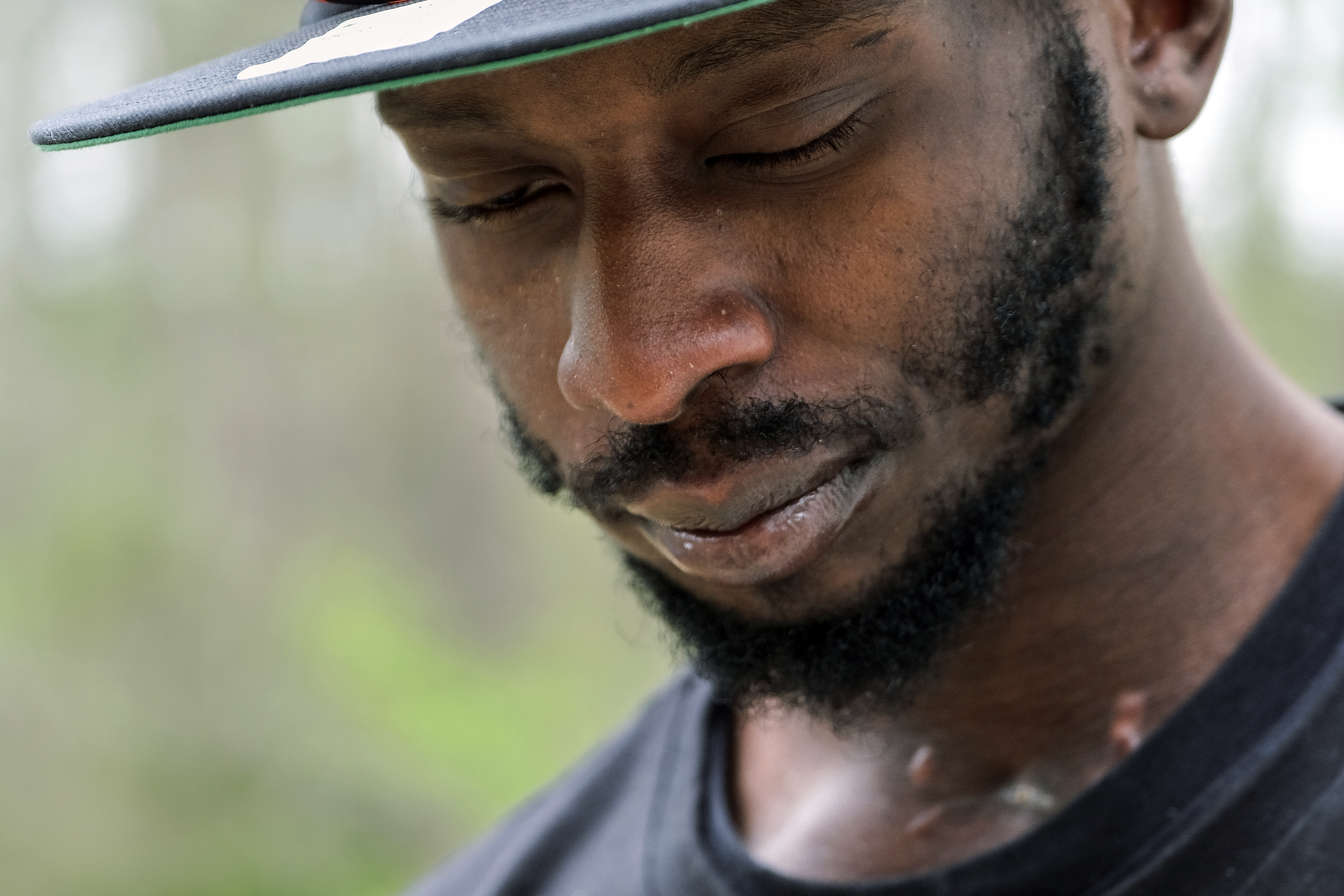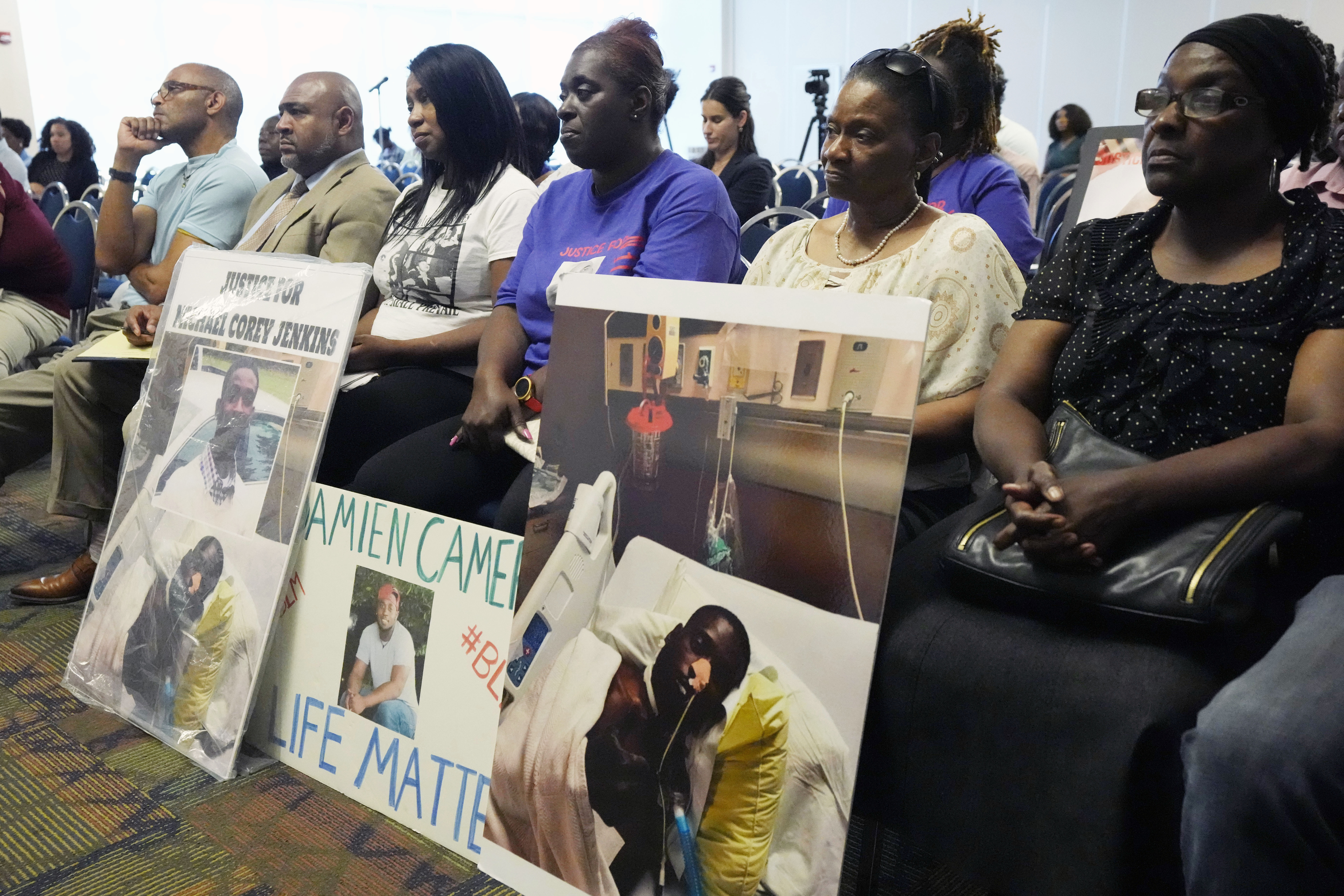
Six white former Mississippi law officers pleaded guilty to state charges on Monday for torturing two Black men in a racist assault. All six had recently admitted their guilt in a connected federal civil rights case.
Prosecutors say some of the officers nicknamed themselves the “Goon Squad” because of their willingness to use excessive force and cover it up, including the attack that ended with a deputy shooting one victim in the mouth.
In January, the officers entered a house without a warrant and handcuffed and assaulted the two men with stun guns, a sex toy and other objects. The officers mocked them with racial slurs throughout a 90-minute torture session, then devised a cover-up that included planting drugs and a gun, leading to false charges that could have sent one victim to prison for years.
Their conspiracy unraveled months later, after one of them told the sheriff he had lied, leading to confessions from the others.
We've got the news you need to know to start your day. Sign up for the First & 4Most morning newsletter — delivered to your inbox daily. Sign up here.
Each one agreed to sentences recommended by state prosecutors ranging from five to 30 years, although the judge isn't bound by that. Time served for the state charges will run concurrently with federal sentences they are scheduled to receive. Each could get longer prison sentences in federal court in November.
The men include five former Rankin County sheriff’s deputies — Brett McAlpin, Hunter Elward, Christian Dedmon, Jeffrey Middleton and Daniel Opdyke — and a police officer from the city of Richland, Joshua Hartfield.
All six pleaded guilty to state charges of obstruction of justice and conspiracy to hinder prosecution.
Dedmon and Elward, who kicked in a door, pleaded guilty to additional charges of home invasion. Elward also pleaded guilty to aggravated assault, for shoving a gun into the mouth of one of the victims and pulling the trigger, in what authorities called a “mock execution.”
The victims — Michael Corey Jenkins and Eddie Terrell Parker — arrived together. They sat in the front row, feet away from their attackers’ families. Monica Lee, the mother of Damien Cameron, another Black man who died in 2021 after Elward punched and tased him during an arrest, embraced both men.
After the brazen acts of police violence in Rankin County came to light, some residents pointed to a police culture they said gave officers carte blanche to abuse their power.
The civil rights charges followed an Associated Press investigation linking some of the officers to at least four violent encounters with Black men since 2019, which left two dead and another with lasting injuries. The Justice Department launched a civil rights probe in February.
Rankin County’s majority-white suburbs have been a destination for white flight out of the capital, Jackson, which is home to one of the highest percentages of Black residents of any major U.S. city.
The officers warned Jenkins and Parker to “go back to Jackson or ‘their side’ of the Pearl River,” the documents say.
Jenkins and Parker were targeted because a white neighbor complained that two Black men were staying at the home with a white woman, court documents show.
Parker was a childhood friend of the homeowner, Kristi Walley. She’s been paralyzed since she was 15, and Parker was helping care for her.
“He’s a blessing. Every time I’ve needed him he’s been here,” Walley said in a February interview. “There were times I’ve been living here by myself and I didn’t know what I was going to do.”
Parker and Jenkins have left Mississippi and aren’t sure they will ever return to the state for an extended period. They took solace that at least one part of the justice system appears to have worked.
“With a little fight, with a lot of fight, you can come out with the truth,” Parker said a day after the guilty pleas were announced. “And the truth always prevails over any lie or story you make up.”
Jenkins still has difficulty speaking because of his injuries. The gunshot lacerated his tongue and broke his jaw before exiting his neck.
“As far as justice, I knew we were going to get it,” Jenkins said. “But I thought it was maybe going to take longer.”
Kristen Clarke, who heads the Justice Department’s Civil Rights Division, said the officers fomented distrust within the community they were supposed to serve. Mississippi Attorney General Lynn Fitch said the abuse of power would not be tolerated.



